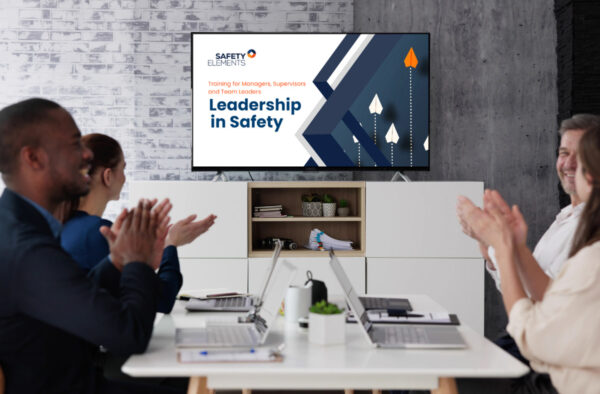- 17 February 2025
- Victoria Beresford
- WHS Tips & Insights
Managing Psychosocial Hazards Starts with Strong Leadership
Are You Taking the Right Steps to Protect Your Employees?
Imagine an employee too afraid to report bullying because they fear retaliation. Another worker is constantly overwhelmed by unrealistic deadlines, leading to burnout. A supervisor dismisses concerns about workplace aggression, assuming it is just part of the job.
These are psychosocial hazards that affect mental health, wellbeing, and workplace safety. As a leader, executive, or duty holder, your legal and ethical responsibility goes beyond physical safety. You must take proactive steps to identify, prevent, and manage these risks before they escalate.
What Does Due Diligence Look Like for Leaders?
Strong safety leadership goes beyond policies and procedures. It involves embedding safety and wellbeing into everyday workplace culture.
1. Stay Informed
Understanding psychosocial hazards is just as important as knowing physical risks. Leaders should:
- Keep up with workplace safety laws and industry standards.
- Seek expert advice on psychosocial risk management.
- Engage in training programs that help identify and prevent workplace aggression, bullying, and stress-related risks.
2. Understand Your Workplace
Many leaders are detached from day-to-day risks. Actively engaging with employees can uncover hidden issues.
- Observe team interactions, workloads, and workplace culture.
- Conduct surveys or one-on-one discussions to understand employee concerns.
- Identify signs of burnout, workplace conflict, or unresolved tensions before they escalate.
3. Provide Resources and Support
Leaders must ensure employees have the right tools to stay safe both physically and psychologically. This includes:
- Psychosocial risk training for managers and supervisors.
- Support services such as Employee Assistance Programs (EAPs).
- Workplace adjustments to reduce high job demands and improve work-life balance.
4. Strengthen Reporting Systems
A strong reporting culture is essential for addressing harmful workplace behaviours before they escalate.
- Implement clear, confidential, and accessible reporting processes.
- Ensure employees trust that concerns will be taken seriously and addressed promptly.
- Train managers to handle complaints professionally and with empathy.
5. Monitor, Review, and Improve Continuously
Workplace risks change over time, and leaders must adapt.
- Conduct regular risk assessments on workplace stressors, team dynamics, and leadership behaviours.
- Track trends in incident reports and absenteeism as indicators of psychosocial hazards.
- Update safety policies and training programs to reflect emerging risks.
Why Record-Keeping Matters in Managing Psychosocial Hazards
Keeping accurate records is more than a compliance measure. It is proof that your organisation is taking reasonable steps to manage risks.
✔ Protects your organisation in case of audits, claims, or investigations.
✔ Identifies recurring issues so leaders can implement proactive solutions.
✔ Builds trust with employees by demonstrating transparency and accountability.
Essential records to keep include:
- Training logs showing leadership and employee participation in safety programs.
- Incident reports documenting cases of bullying, aggression, or work-related stress.
- Employee feedback from surveys or consultation records that document discussions about mental health, wellbeing, and workplace improvements.
The Impact of Proactive Leadership on Workplace Culture
When leaders prioritise psychosocial safety, the benefits go beyond compliance.
✔ Stronger Employee Engagement – Workers feel safe speaking up and contributing ideas.
✔ Reduced Workplace Conflict – A respectful culture lowers bullying, harassment, and aggression.
✔ Better Productivity and Retention – Happier, healthier employees stay longer and perform better.
Psychosocial hazards will not resolve themselves. Leaders must take responsibility for creating a workplace that prioritises safety, trust, and respect.
Take Action Now
Is your workplace truly prepared to manage bullying, aggression, and work-related stress? Now is the time to evaluate your approach and ensure you fully understand your due diligence responsibilities.
- Review your policies and procedures to confirm they address psychosocial hazards effectively.
- Assess whether your leadership team is equipped to foster a culture of safety, trust, and accountability.
- Strengthen reporting systems so employees feel safe speaking up about workplace concerns.
Need guidance? Explore official resources:
- For Victorian workplaces – Visit WorkSafe Victoria to understand officer duties and obligations.
- For businesses under the Model WHS Act – Learn more at Safe Work Australia.
Taking proactive steps today can help prevent harm, reduce risks, and create a safer, healthier workplace for everyone



